Remembrance: From the Pit Top to the Page
Writing, Vulnerability, and the Legacy of my Resident & Friend Mary Spence
David Whyte writes that “the fear of loss, in one form or another, is the motivator behind all conscious and unconscious dishonesties.” [1] But he also reminds us that to be truly alive- to be fully here - we must be willing to let life touch us. To let it bruise us. To open ourselves to it, even when it hurts.
.
I’ve been thinking a lot about wounds lately. Not just the ones we carry silently, but the ones that ask to be seen. The ones that, if we’re lucky, can become doorways. Making - whether drawing, writing, thinking, sticking etc - is one of the few practices I know that lets us walk through those doorways. Not to escape the pain, but to understand it. To stand inside it, and shape something from it.
/
Mary Spence understood this. I got to know Mary during my time as a councillor. She was an older woman that didn’t show her age at all. In fact, I had no idea she was in her early 80’s when we met. I would have put a decade or 2 younger. She was a proud part of the writers group at Woodlands Library, one of leaders of it in fact, an ordinary miracle of a group that gave shape to memory, to place, to loss and love. A group that came & helped us to keep making Woodlands Library this brilliant brave, creative space.
I got to know Mary in the early days of our take-over of Woodlands Library. I was working out how we could become this place of experimental creative practices. How we can give people the freedom / space to begin to explore or refine their creative voices and place, to be opened up themselves - finding what we dislike is as much as important as finding stuff we like.
Mary knew exactly what I meant, and she knew why for me it was important for us to push peoples perceptions of what creativity and contemporary art practices are and can be. She encouraged me, made me feel less alone in this persuit. And I LOVED getting to see her every time we crossed paths in the library. I always felt cared for and seen by Mary, who was a local resident who had such presence and kindness.
//
In helping me gather evidence, Mary told me about a residency Ian McMillan (famous poet & broadcaster) had led at the library in the early 1990s, not long after it opened. I had no idea we had stuff like that happen in the past here. It was exactly the inspiration and motivation I needed. She was the community he had worked with back then.
He took the group out to the old pit top - still raw from the recent closure. The land was turned upside down, emotionally scorched, empty, full of silence and sharp junk sticking out of the ground. I remember she said, “I was shocked!” “How could he expect us to write about something so ugly or empty? But he made us go up there every week and write…”
She talked so fondly about how Ian had pushed them -gently, but with purpose-out of their comfort zones. He challenged them to look again. To find language for the landscape of loss. To see what was still alive beneath the rocks… the beautiful rocks that were up there. That was the moment Mary’s practice cracked open.
It unsettled her. It moved her.
It taught her that the real work of writing isn’t about polishing what’s pretty, it doesn’t need to be perfect, it doesn’t need to be about what’s obviously beautiful, in fact IT IS WORK. it’s about standing in the truth of things, even when they’re unfinished, hard to find, or unbearable.
That experience stayed with her. She went on to make the most incredible zines; raw, intimate, honest and fun - a practice she kept right up to the end. She even gifted me them - including photos of that special time with Ian. I tried to give her the photos back - but she wouldn’t have it. She must have known that I’d keep going back to them and find some use, a new life, a new story for them…
She understood something many people miss: that being opened up by challenge, grief, even confusion, is not a weakness. It’s the birthplace of real art. Real connection. Real community. Just as David Whyte writes about.
That we (commissioners, funders etc) shouldn’t try to pre-empt what an audience likes or can handle - as it stops these moments of learning and understanding within ourselves and the work.
///
Today was Mary’s funeral, and I couldn’t be there in person. Which, I am gutted and quite upset about. Mary passed onto her new life a week after I lost the election. Another massive kick in the stomach - I am missing one of my guiding stars when I feel like I need her the most.
So this is my offering. My remembering. My honouring of a woman who taught me. - without ever claiming to be a teacher -what it means to live with open eyes and an open heart.
One of the greatest privileges of my life has been getting to know people like Mary. To sit beside them in libraries, on doorsteps, in quiet conversations about books, or buses, or big questions.
It humbles me- the way people let you in, share their lives, their stories, their wounds. It’s a rare kind of grace. A lesson, really, in how to pay attention.
Mary knew that vulnerability isn’t just about wounds, it’s about what we do with them. How we carry them. How we speak them. How we transform them into something that might help someone else feel less alone. Like she did with me.
Rest in power, Mary. May your words continue to make space for others to feel, to speak, to begin again. We will continue your story, together.
/////
References:
Images are a selection from Mary’s zines that she generously gave to me 2-3 years ago. And I keep them safe - as been given a great privledge to do something with them for Mary.
/
[1] comes from David Whyte’s book Consolations: The Solace, Nourishment and Underlying Meaning of Everyday Words. It’s part of Whyte’s essay on “Honesty”, where he explores how grief and loss compel us toward truthfulness, and how vulnerability -recognising our powerlessness and fears - is at the very heart of genuine honesty.




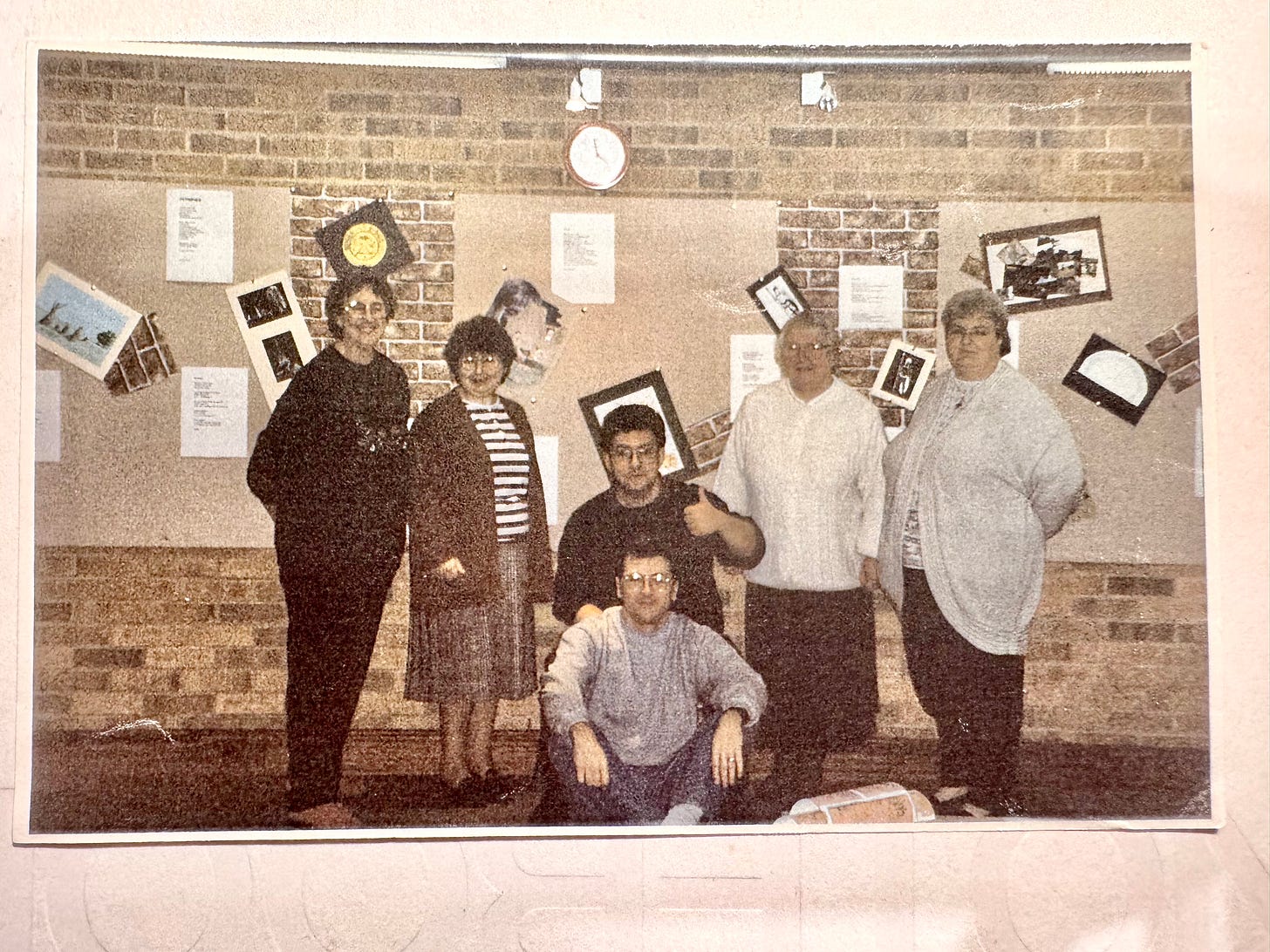
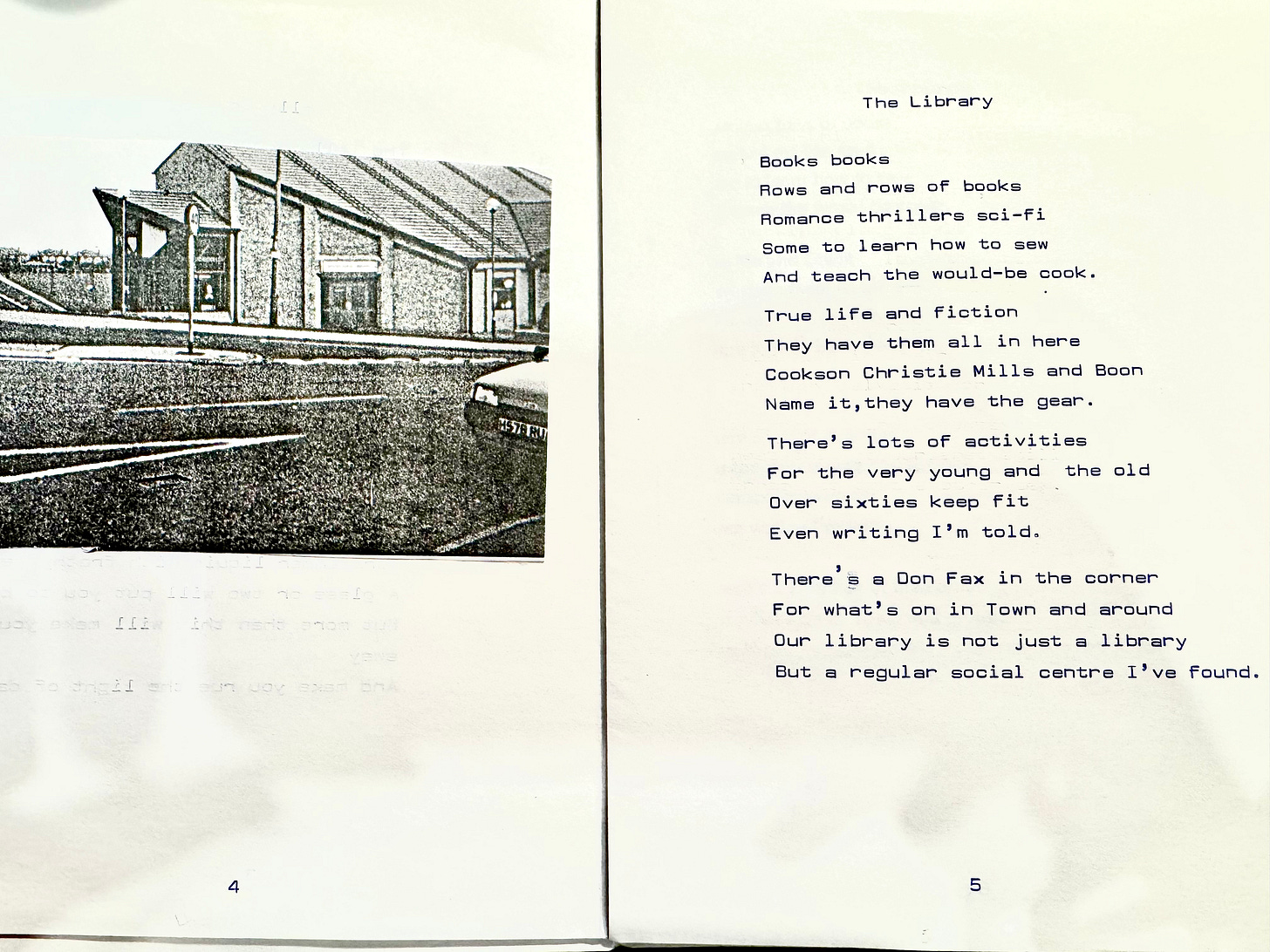

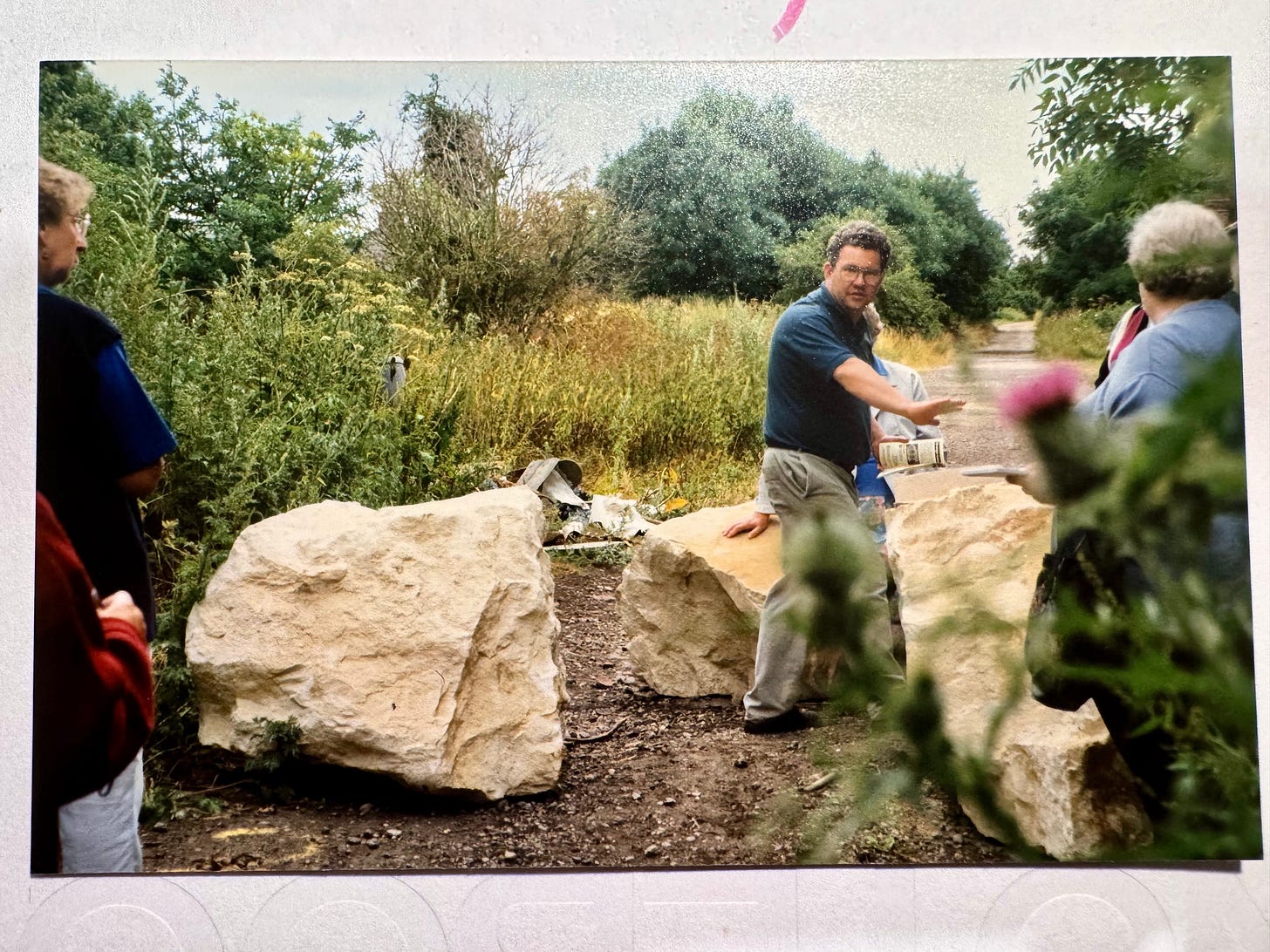
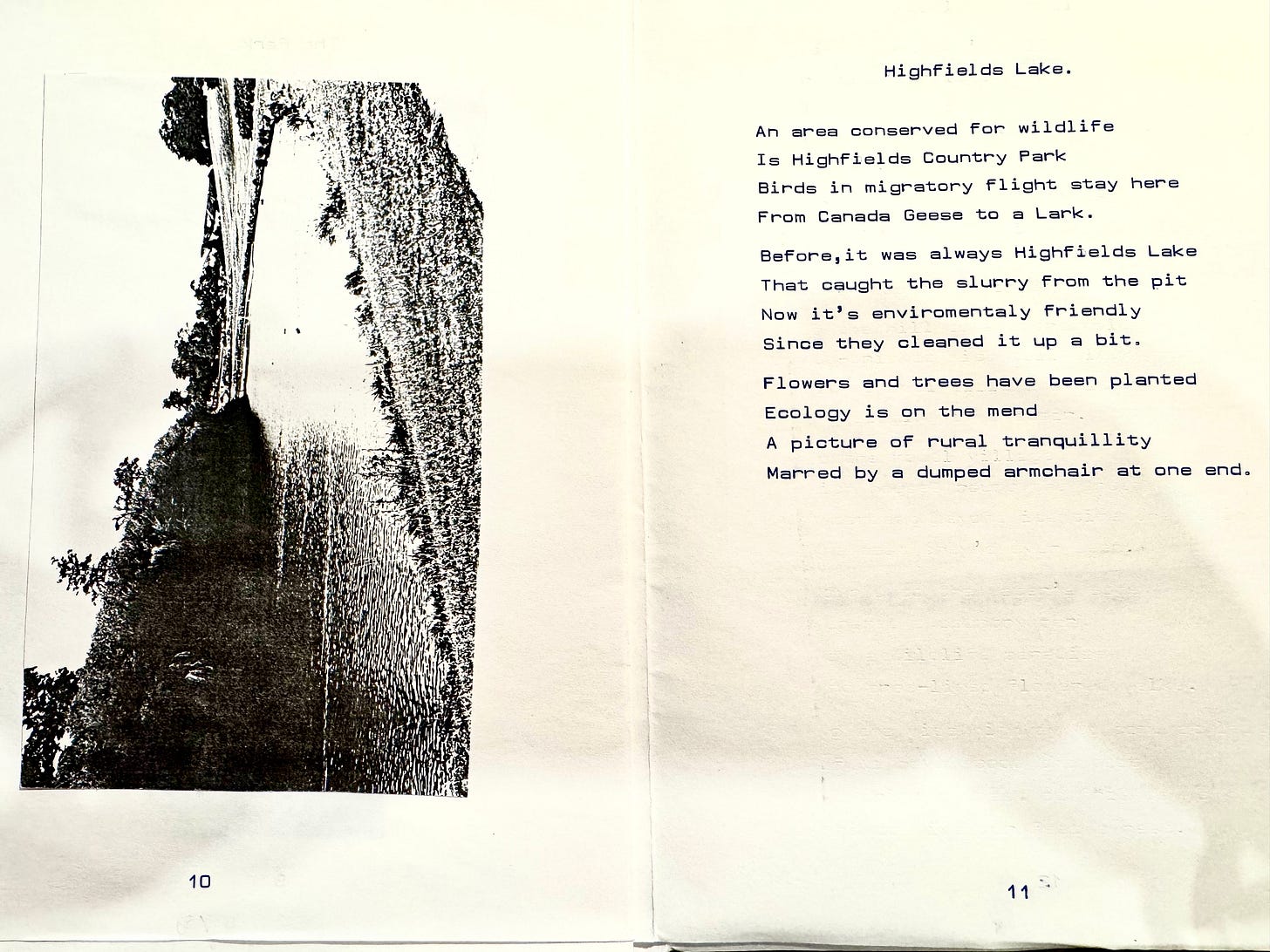
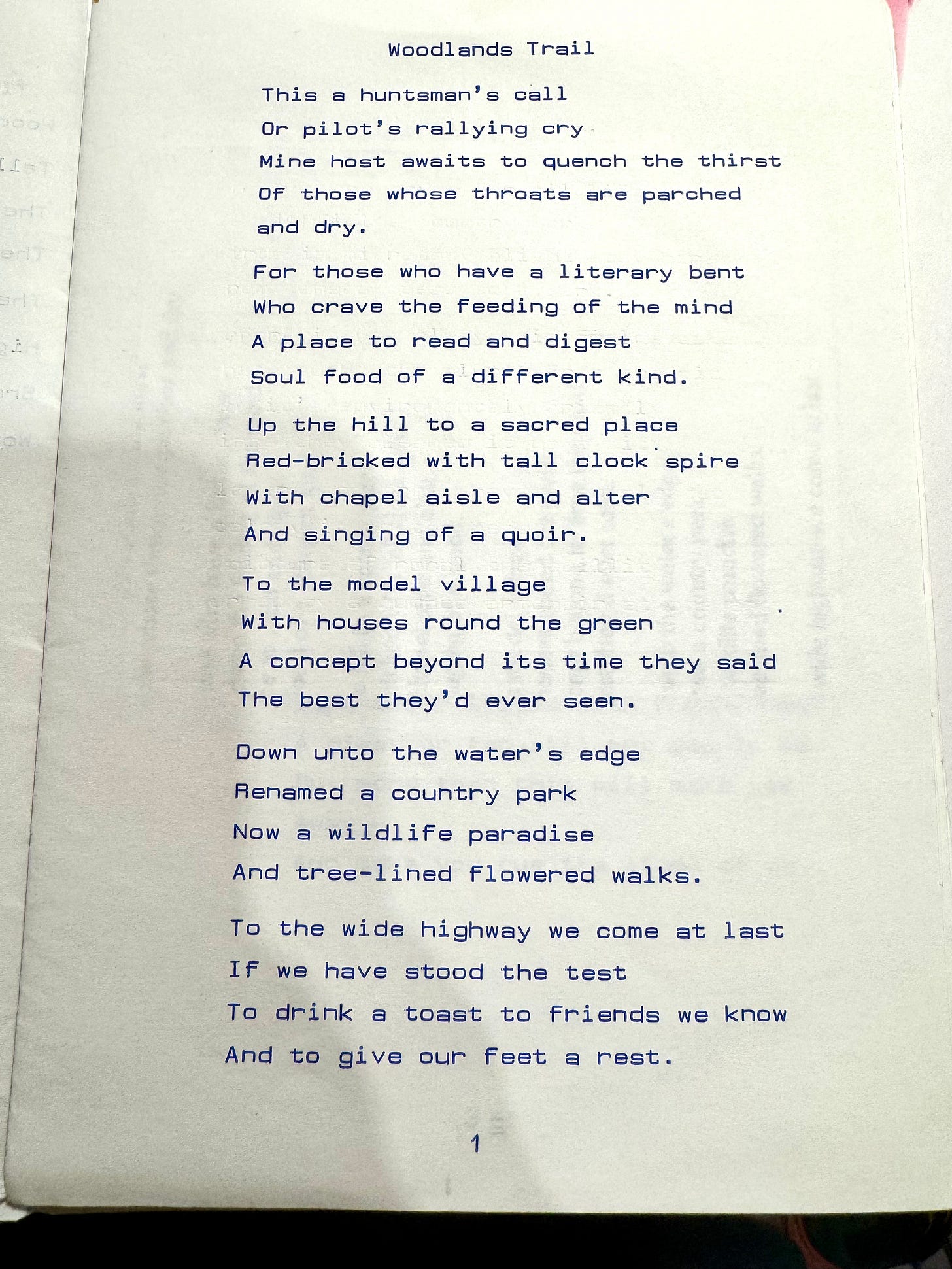

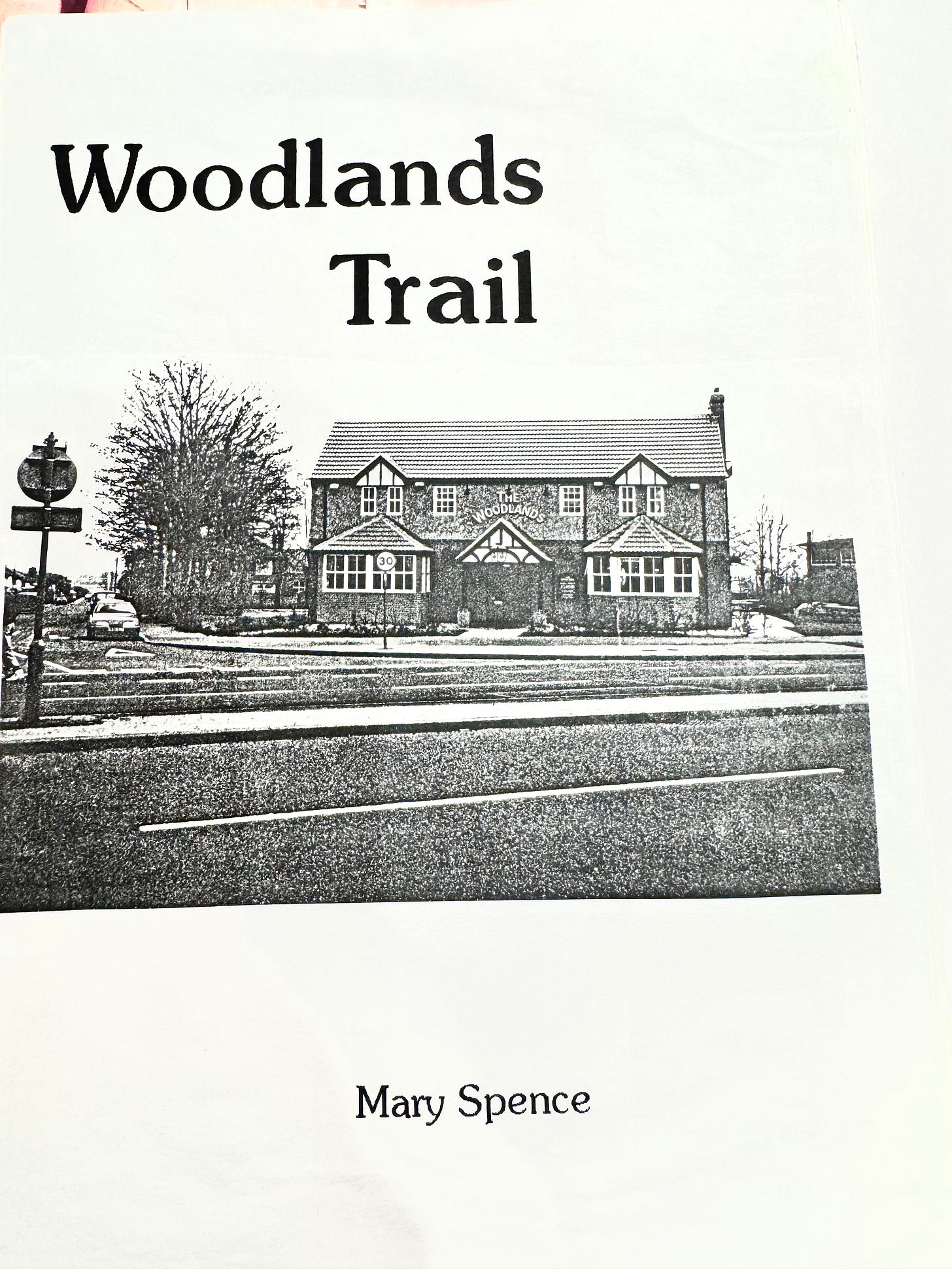
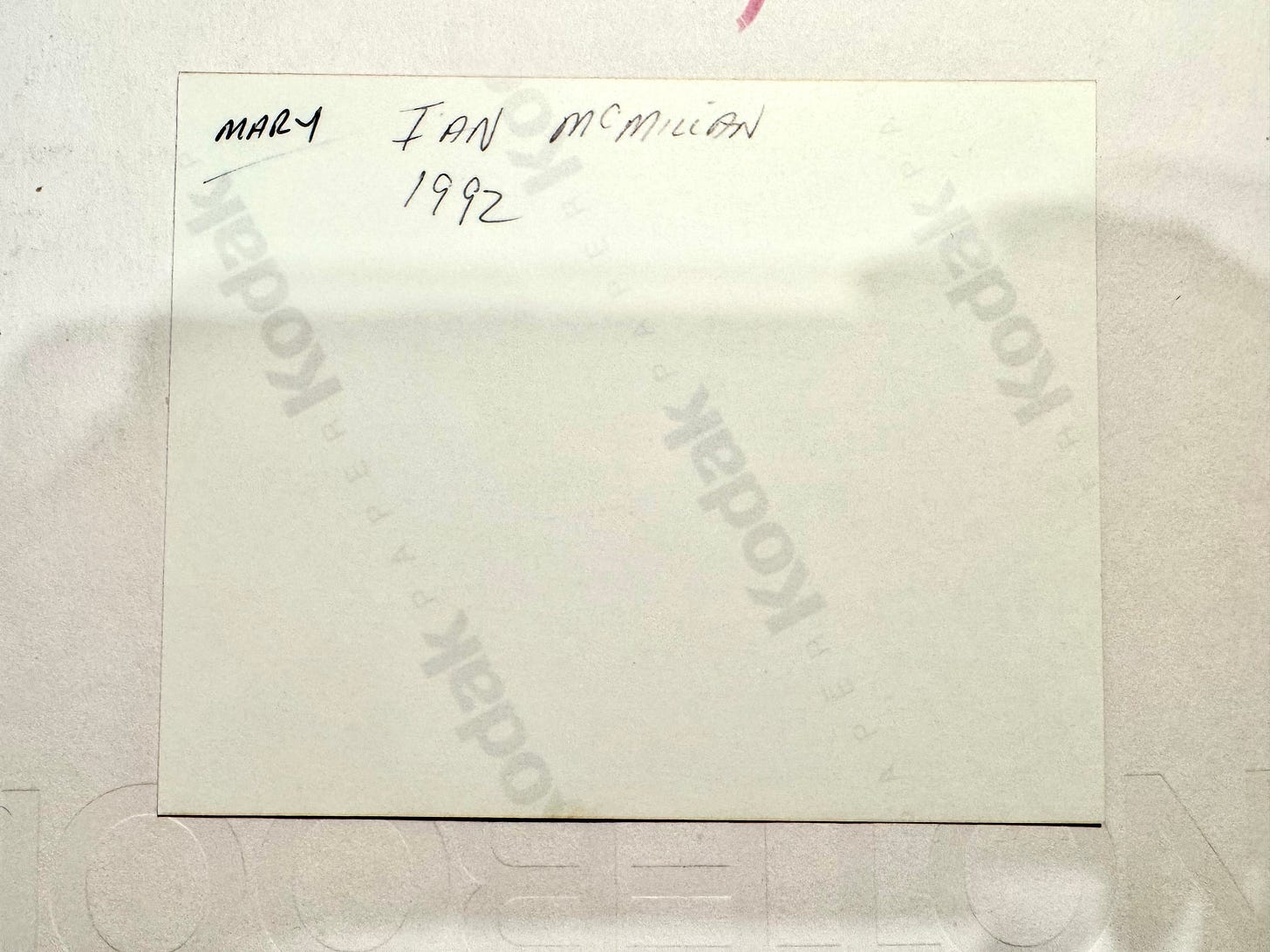

Smizz, this is really beautiful. Thank you for sharing this inspiring life with us🌼